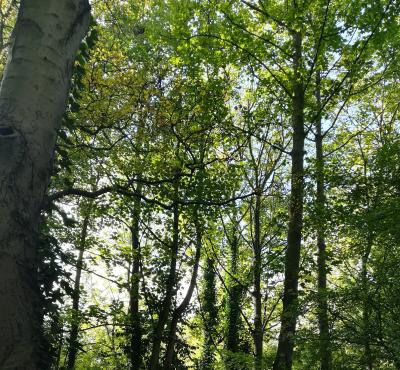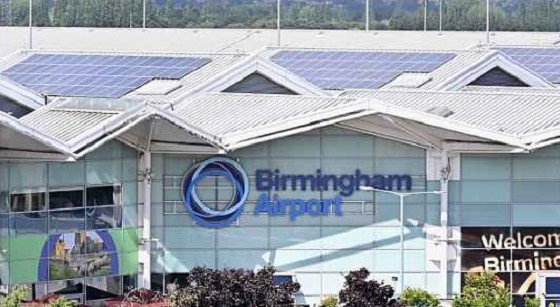Wolverhampton is to become home to a second Tiny Forest to help local communities connect with nature and protect their environment for the future.
City of Wolverhampton Council is working with Earthwatch Europe and the Department for Environment, Food & Rural Affairs (Defra) Green Recovery Challenge Fund to create the forest at Moseley Road Open Space in Bilston.
The Tiny Forest, made up of 600 densely planted native trees covering a space the size of a tennis court, will offer a place for school pupils and the wider community to explore and learn in the local area. It will be the second Tiny Forest in Wolverhampton, after the city become the first in the Black Country to launch a similar planting scheme at Oak Street Open Space in Merridale this March.
The new initiative is led by Earthwatch Europe, with the Bilston Tiny Forest funded by Defra under its Green Recovery Challenge Fund which supports projects aimed at restoring nature and tackling climate change. Preparation and planting will get underway during the winter, when the council plans to involve nearby schools and the local community.
Earthwatch is pioneering Tiny Forests across the country, connecting schools and communities with nature. The environmental charity will work with local residents and school pupils to monitor the forest and collect data on carbon absorption, flood mitigation, thermal comfort and biodiversity, as well as assessing the social and wellbeing benefits.
Bilston’s Tiny Forest supports City of Wolverhampton Council’s Tree and Woodland Strategy and Open Space Strategy, as well as forming part of the response to its Climate Emergency declaration made in July 2019. The forest at Moseley Road Open Space will be available for children from local schools to visit and will also be open to the wider community who live near the site.
Councillor Steve Evans, City of Wolverhampton Council’s cabinet member for city environment and climate change, said: “It’s great news that Wolverhampton is to become home to a second Tiny Forest.
“These small spaces of densely packed trees offer great benefits to the local area – both from an environmental and a well-being point of view. As a city, we are committed to doing all we can to improve our environment for our residents and tree planting enables us to offer a greener and healthier future for generations to come.”
Cabinet member for Adults and Bilston North ward councillor, Councillor Linda Leach, said: “We’re delighted that Moseley Road Open Space is to become home to a Tiny Forest.
“Tiny Forests are such an innovative way of encouraging local residents, organisations and schools to get out into nature and discover the benefits of being in the open air. I look forward to the planting and would encourage any local residents to come and enjoy the forest and take part in the community monitoring opportunities.”
Maria Pontes, Programmes and Partnership Director at Earthwatch Europe, said: “Tiny Forest provides rich opportunities for connecting young people with the environment and sustainability.
“It’s vital that we give people the knowledge and skills to protect our natural world and inspire them to take positive action from a young age. We are delighted to be working with the City of Wolverhampton Council and the Defra Green Recovery Challenge Fund to bring these inspiring spaces to Wolverhampton, and other communities across the UK.”
Environment Minister, Rebecca Pow, said: “Through our £80 million Fund, we are on track to support over 2,500 jobs, plant almost a million trees and increase nature recovery at a huge scale across the country, which will help us deliver against our 25 Year Environment Plan.”
Once complete the Tiny Forests programme will provide benefits to local children across the country, including:
●Educating 9,000 children on global and local environmental challenges across 24 schools
in some of the most deprived areas of the UK.
●Supporting 1,200 young people aged 18 to 25 in conducting scientific monitoring of each
Tiny Forest.
●By 2023, the Tiny Forests will collectively have an average annual uptake of up to 7.2
tonnes of carbon.











